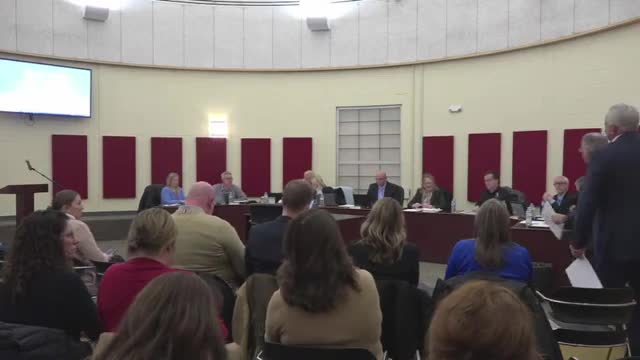Auditor issues unqualified opinion as Dunlap CUSD 323 reviews fund balances, debt capacity
Get AI-powered insights, summaries, and transcripts
Subscribe
Summary
An external auditor told the Dunlap CUSD 323 school board an unqualified opinion was issued on the district's financial statements and highlighted rising real-estate tax revenue, fund-balance composition and remaining debt capacity as the board considers longer-term budgeting pressures.
An outside auditor told the Dunlap CUSD 323 Board of Education on Feb. 12 that the district’s most recent financial statements received an unqualified opinion, and he flagged key trends in fund balance, tax revenue and debt capacity the board should watch.
Russ, an auditor with Goran & Associates, told the board "we issued an unqualified opinion," and walked trustees through the audit handout that summarizes operating funds, fund-balance composition and year-over-year changes in revenue and expense. He said the district’s total fund balance is reported at about $212,000,000 but that much of that total consists of buildings, equipment and other nonliquid balances.
The auditor emphasized that real-estate tax receipts accounted for the largest share of operating revenue growth between the two most recent fiscal years. He also noted the transportation fund collected more than expected this year after the state made five payments instead of the typical four, and that interest income was higher than budgeted. He presented a preliminary financial-profile score of roughly 3.55 on the state’s recognition scale and said that outstanding debt and the district’s expenditure-to-revenue ratio were the factors keeping the district from a higher score.
Board members asked questions about debt capacity and whether issuing bonds would change the district’s profile. The auditor said the district still has legal debt capacity on the books and that issuing additional debt—at the levels discussed hypothetically—would not necessarily lower the district’s current rating.
The auditor also walked the board through operating-fund trends: salaries and benefits are the largest expense category (about 80 percent of operating expenditures), supplies and materials and capital outlays are smaller shares, and total operating expenses increased about $3.47 million (roughly 7.5 percent) from the prior year. He noted that some operating funds ran expenditures above revenues in recent years, a factor that affects the financial-profile score.
Board members and staff requested that the audit handout and slides be posted to board books or the district website to aid bargaining and public understanding. The auditor said copies are available on the district website and he offered to send electronic copies to board members.
The presentation closed with board members asking for periodic updates and earlier distribution of materials in future years so the board and public have more time to review the detail before meetings.
